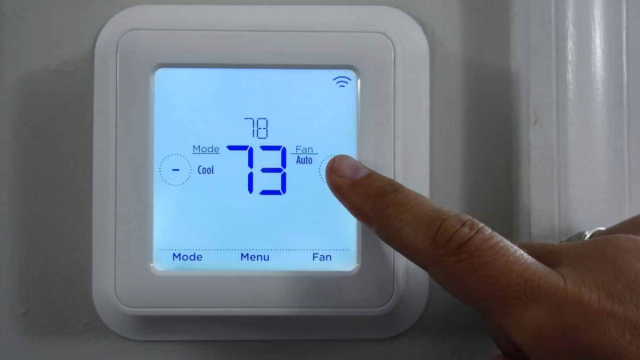Delving into the heart of efficient air conditioning, understanding the role of thermostats proves essential. Serving as the control center, thermostats regulate and maintain the desired temperature within a space. This critical component of air conditioning systems goes beyond mere temperature adjustments; it orchestrates the entire cooling process. By offering precision and customization, thermostats ensure optimal comfort and energy efficiency. This exploration illuminates the significance of thermostats in orchestrating the seamless operation of air conditioning systems, emphasizing their pivotal role in creating a climate-controlled environment tailored to individual preferences and environmental considerations.
However, it’s crucial to address potential issues, such as Nest Thermostat going offline, which may disrupt this orchestration and warrant timely troubleshooting.
Control Center of Comfort:
Contents [show]
Serving as the core controller, thermostats harmonize comfort in air conditioning systems. Through continuous monitoring and regulation of temperature settings, these pivotal devices guarantee a consistently comfortable indoor environment. They adeptly respond to occupants’ preferences and ever-changing environmental conditions, ensuring a seamless orchestration of cooling processes. The role of thermostats transcends mere temperature adjustments, embodying the essence of precision climate control. In doing so, they elevate the overall experience, creating an atmosphere tailored to individual comfort preferences while efficiently adapting to external elements.
Precision Temperature Management:
Beyond simple temperature control, thermostats play a pivotal role in precision temperature management. Empowering users to establish and sustain specific degrees, these devices ensure not only optimal comfort but also contribute to energy conservation. By facilitating precise adjustments, thermostats become instrumental in maintaining a harmonious balance between personalized comfort preferences and the efficient utilization of energy resources. This nuanced approach to temperature regulation highlights their significance in creating a tailored, energy-efficient environment, where users can enjoy the desired level of comfort without compromising on sustainability.
Efficiency Boosters:
Thermostats are vital for improving energy efficiency in air conditioning. Through real-time regulation of cooling cycles, they streamline operations, curbing energy use and fostering sustainability. This strategic control ensures optimal functionality while reducing environmental impact, highlighting thermostats as key contributors to eco-friendly and energy-conscious air conditioning systems.
Smart Thermostats: Modernizing Climate Control:
Smart thermostats represent a technological leap forward, offering advanced features like remote monitoring, programmable schedules, and adaptive learning. These innovations empower users to control and optimize their air conditioning systems efficiently, fostering a more interconnected and responsive climate control experience.
Balancing Comfort and Conservation:
Thermostats play a pivotal role in striking a harmonious balance between maintaining indoor comfort and promoting energy conservation. Through intelligent temperature management, they help create a sustainable and comfortable living environment, aligning with both personal comfort goals and broader environmental considerations.
In conclusion, thermostats stand as the unsung heroes of air conditioning, serving as the control nexus for comfort and efficiency. Their precision temperature management, integration of smart technologies, and role in balancing comfort with conservation underscore their indispensable contribution to creating optimal, energy-efficient indoor environments. When considering an upgrade or replacement choosing a thermostat compatible with modern advancements can further enhance your system’s performance and overall energy efficiency.


